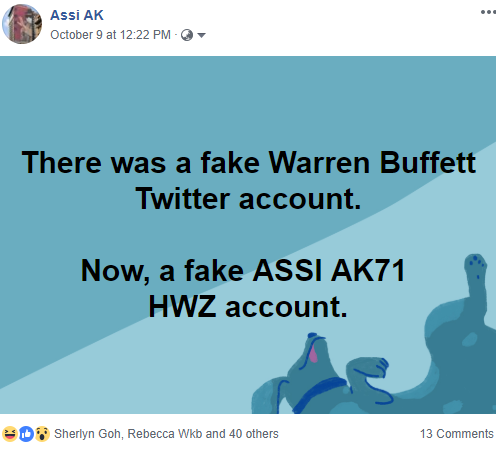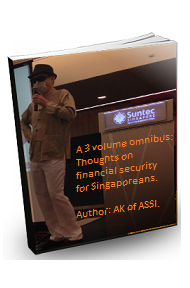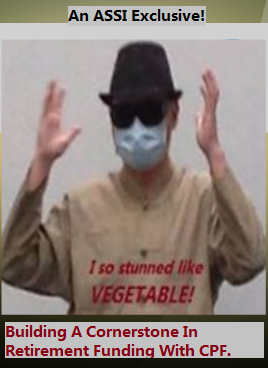This might sound familiar to some of us but I am more interested in sharing this with readers who have yet to buy insurance products or who are thinking of buying insurance products soon. Be careful.
Reader says...
The monthly premium is $208 and my dad will have to pay the premiums until he turns 88 yrs old.
Before purchasing the AIA whole life insurance, the cousin knew my dad had another whole life insurance with NTUC for sum assured of $25,000.
The thing that pains me was that my cousin was starting out as an insurance agent, sales target became the motive.
For example, term insurance for sum assured of $50,000 or $100,000 until he is 70 or 75. Then the NTUC whole life ($25,000) will cover until 99 years of age.
Of course, her commission will not be as much. Then again, what is the primary role of a financial planner?
Now my dad is 61 yrs old, I'm trying to convince my dad to cancel this AIA whole life insurance (yearly expense of $2500) and purchase a term insurance of $50,000 for the coverage period of 10 or 15 years.
In order to meet his sales target, he paid the premiums on behalf on my husband who was still in university that time.
Now, when we reviewed this ILP policy, a total of $8000 premiums paid but the surrender value was only $5000. I told him that out of nowhere, you have lost $3000 within 5 years.
Could have been better to put it in a bank let inflation erode or go for a holiday, which has at least some form of "payback".
Although we felt very heart pain, at least it is a good lesson for both of us. If don't know, don't any how buy =p
 |
| Taken on a trip to Hong Kong: The giant Buddha in Ngong Ping. |
AK says...
I am quite happy to read your emails which put a smile on my face. :)
I am sorry but not surprised to hear of your dad and husbands' experience.
My parents also had similar experience and the policies were all sold to them by relatives and friends. -.-"
With regards to your dad's case, unless he still has dependents, he doesn't even have to buy a term life policy till age 70 or 75.
I don't know if you read my blog post on how I advised my dad to terminate his whole life policy because he no longer has dependents.
We, his children, are all grown up and making our own money.
So, your dad could consider terminating his whole life policies and his cash flow will improve.
Of course, he will probably be receiving a lump sum payment as well which he could use for a holiday or something else he has been thinking of doing.
He should enjoy his golden years and not worry about paying for an insurance policy that has outlived its purpose. :)
The truth is nobody cares more about our money than we do.
Related posts:
1. Should I terminate an expensive ILP from a friend?
2. A true story about life insurance and grapes.
3. Consider terminating whole life insurance policies.
4. AK responds to Sumiko Tan's expensive lesson.
5. MediShield Life, free medical insurance and hospitalisation?

















